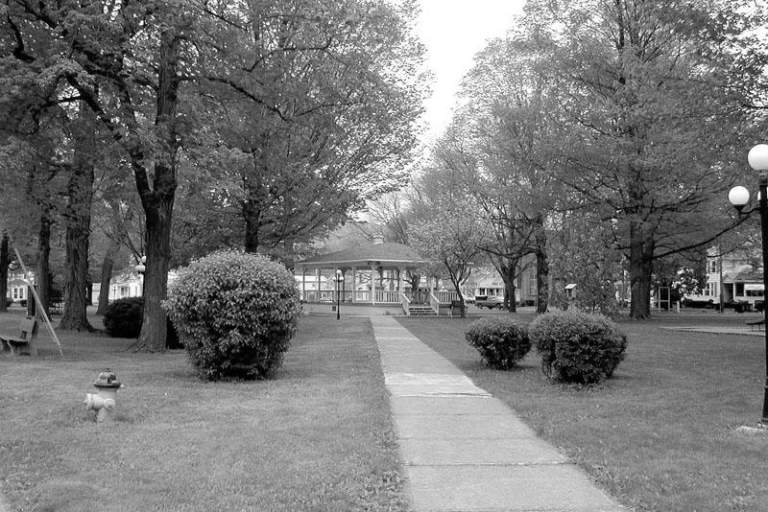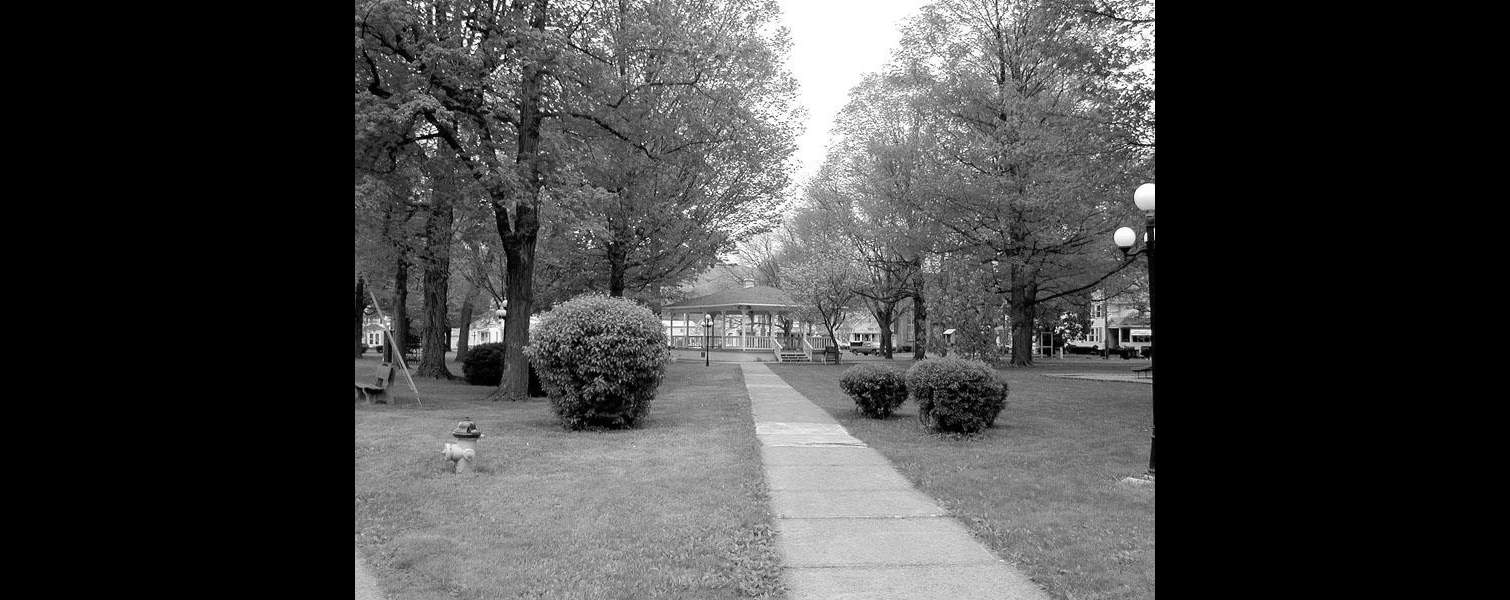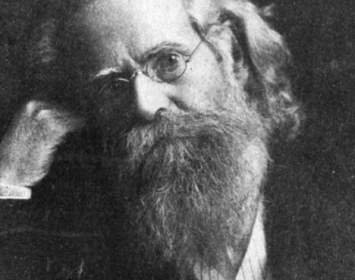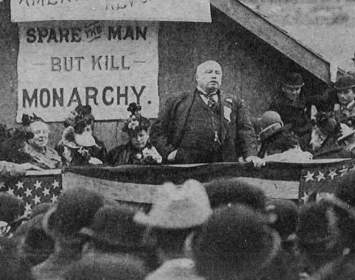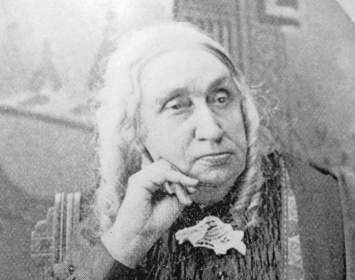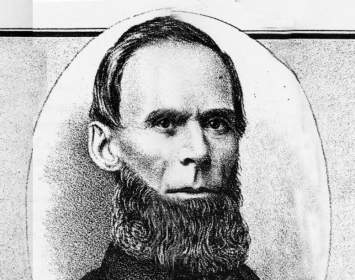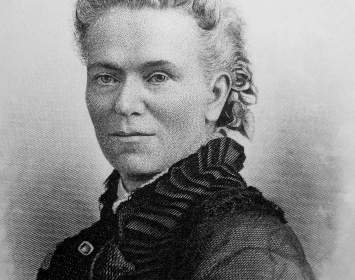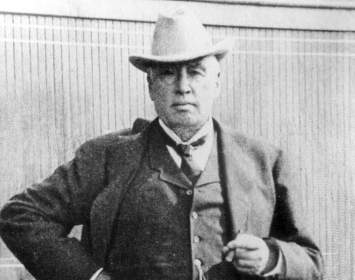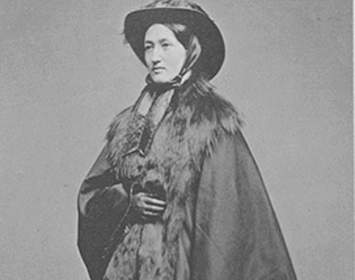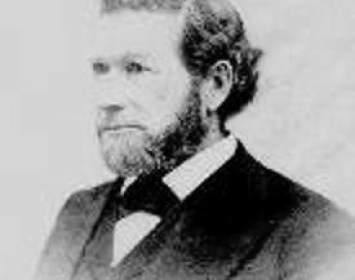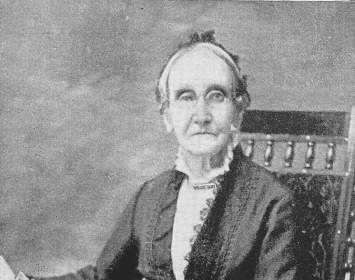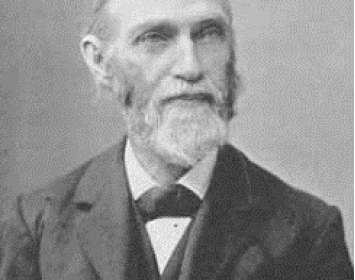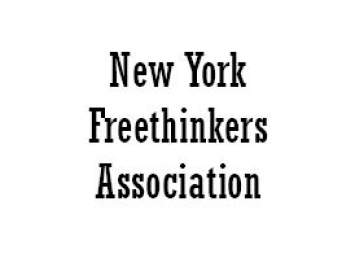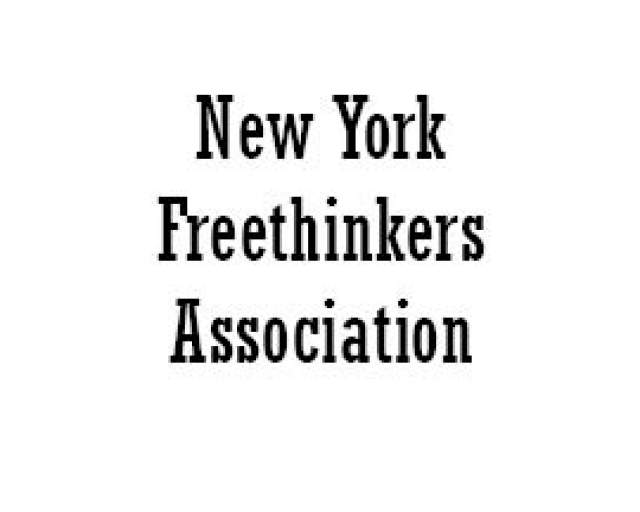The second annual convention of the New York Freethinkers’ Association (despite its name, a national conference) was held on August 22–25, 1878, mostly in this park and partly in the Freer Opera House about 500 feet to the west-southwest. Outdoor speeches and events were held at the park in a rented tent and in the open air. Convention attendance at this park ranged as high as 3,000 persons.
Here, on Thursday, August 22, woman’s rights and freethought activist Matilda Joslyn Gage delivered her first freethought address. (Nineteenth-century practice was to use the singular, woman's, when referring to women as a class; later practice was to use the plural, women's.) Gage's address stressed the role of Christianity in the oppression of women.
Also on Thursday, New Jersey feminist Mary Tillotson spoke on dress reform.
Toward the end of Thursday's proceedings, regional freethought enthusiast James Madison Cosad was introduced and honored before the convention. Cosad had organized the previous year's meeting of the Liberals and Freethinkers of Central and Western New York, held at his farmstead grove in Huron (Wolcott), New York, on August 17–19, 1877; the Liberals and Freethinkers became the New York Freethinkers' Association, sponsor of the Watkins convention.
On the mornings of Friday, August 23, and Saturday, August 24, freethinker Giles Badger Stebbins addressed the convention on Buddhism. (During this period, "freethought" encompassed a broad range of dissenters against Christianity, including atheists and also adherents of non-Christian traditions such as Shakers, Spiritualists, and some Eastern religions. All shared an opposition to Christian orthodoxy.) On Saturday, Stebbins spoke again—as did Tillotson—his audience consisting of convention-goers who had not embarked on a morning steamboat cruise.
Also on August 24, freethought journalist D. M. Bennett was arrested, along with two other freethinkers (W. S. Bell, author of The Hand-Book of Freethought, and Josephine Tilton, both of Boston) , for selling a controversial marriage-reform and birth control tract, Cupid’s Yokes by Ezra Heywood. Rochester abolitionist, woman’s rights advocate , Quaker, and Spiritualist Amy Post paid bail for Bennett and Bell. The feminist activist Elizabeth Smith Miller paid bail for Tilton—though she quickly reneged after reading the marriage reform tract, whose arguments she found repellent.
This arrest led indirectly to a celebrated obscenity case involving decency crusader Anthony Comstock, agnostic orator Robert G. Ingersoll, President Rutherford B. Hayes, and others, which ultimately established the Hicklin standard, the repressive legal definition of obscenity that prevailed in U.S. law until 1957.
On Sunday, August 25, nationally prominent freethinker Thaddeus Burr Wakeman lectured on the principles of organizing freethought institutions. Of particular interest were his recommendations on the movement's further relationship with Spiritualism, whose eventual debunking he apparently anticipated.
The New York State Freethinkers Association convened again in Watkins on August 23–27, 1882. Because of persistently rainy weather the park was not utilized, though seating and a tent had been set up. Most convention events took place in the Freer Opera House; a banquet honoring D. M. Bennett was held at the Glen Park Hotel.
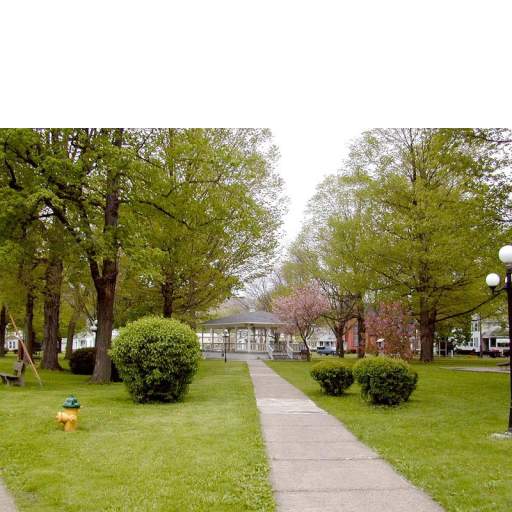
Freethinkers Meeting Site (park)
This site, now Lafayette Park between Fourth and Fifth Streets in Watkins Glen, is one of the locations of the 1878 New York Freethinkers Convention. Here meetings were held outdoors whenever weather permitted. Here also D. M. Bennett and two other freethinkers were arrested on charges of obscenity for selling a marriage reform tract.
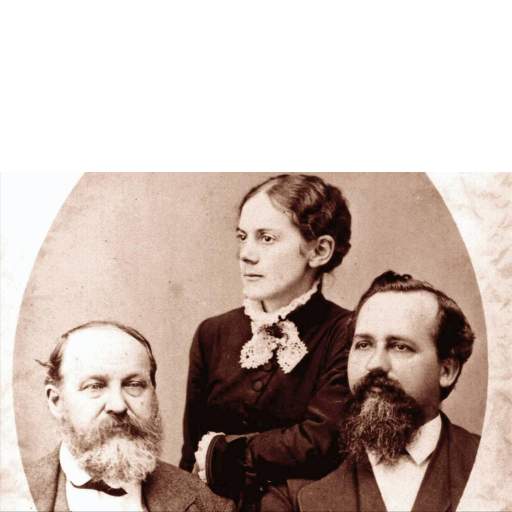
The Trinity
Arrested at the Watkins outdoor meeting site were (left to right) D. M. Bennett; Josephine Tilton, sister-in-law of sex radical Ezra Heywood, author of the pamphlet the trio had been selling; and Prof. W. S. Bell of Boston. At their arraignment an onlooker sarcastically compared them to the Holy Trinity. The enterprising threesome quickly had this photo taken, which they sold under the title "The Trinity" to defray costs of their legal defense.
Associated Historical Events
Second New York Freethinkers' Association Convention
August 22–25, 1878
Sixth New York Freethinkers' Association Convention
August 23–27, 1882
